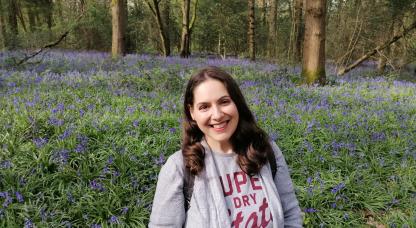A new study is looking at the genetics of MS risk among people from minority ethnic backgrounds. The ADAMS study is looking to recruit over 1000 people.
Dr Benjamin Jacobs, part of the group of researchers based at Queen Mary University of London, spoke to us about the importance of this research and how people with MS from Black, Asian or other non-European backgrounds can easily take part.
Over decades of research, we have come to understand that MS risk is influenced in a complex way by our genes. This knowledge comes from large genetic studies that included over 50,000 people with MS. However, these studies were focussed on people of European ancestry, and so we do not know with certainty whether the genetics of MS is the same across different ethnic groups.
Understanding the genetics of MS in people of non-European ancestral backgrounds is likely to benefit everyone with MS. There are a few reasons for this:
- There are some gene variants which are only seen in certain ancestral groups. Studying MS risk exclusively in people of European ancestry risks missing some of these effects.
- Comparing the genetic maps from different populations might help to pinpoint specific changes in our genes which influence MS risk.
- Given that people from African ancestry backgrounds appear to have more severe disease in general, understanding the genetics of risk in this population may shed light on what determines MS severity in everyone.
But we think the most important argument for doing this research is that it will help people with MS from these under-represented populations.
There are many ways in which genetics will hopefully help improve day-to-day clinical practice in the years to come, for instance by helping with diagnosis, identifying ‘high-risk’ people for prevention trials, helping people with MS to choose the right treatment, and offering insights into probable long-term health outcomes. Failure to include people with MS from minority ethnic groups in genetics studies will limit the usefulness of genetic knowledge in the coming decades and make health disparities worse.
Dr Michelle Lowe explained why she took part in the research.
"I was diagnosed with RRMS in January 2019. It was a huge shock to me - especially as I had a pretty limited understanding of what MS even was. As a Black woman, I know that health disparities and outcomes are disproportionately large for minority ethnic groups, and as a researcher with an interest in the social impact of genetic testing, I also know that minority ethnic groups are (for many reasons), under-represented in genetics research. So, for me, taking part in the ADAMS study was a no-brainer!
Providing a saliva sample was simple; the instructions were really easy to follow with helpful pictures to guide you through it. I know that the findings won’t help me on my MS journey, but by figuring out how MS affects people from different backgrounds, I’m happy that my contribution will help future generations. I would urge anyone with MS from a minority ethnic background to take part in such a worthwhile study!"
You can participate in the ADAMS study from home, as everything is done online through the study website.
Taking part involves three simple things:
- Sign up on the ADAMS website and answer a 10 minute questionnaire about you.
- The research team will send you a saliva kit. You just spit in the tube and send it back for genetic analysis.
- You will need to consent to access to your medical records, so that the research team can look up details about how and when you were diagnosed and your treatment and experiences over time.
The project is going well. We’ve recruited about 600 people in the first year of the study. We aim to recruit over 1000 over the next few years.
You can sign up to the ADAMS study newsletter to get regular updates on our progress and findings.
You can also watch a video blog with Roxy Murray, a member of the ADAMS steering group who also campaigns for disability inclusion. You can also email the team on adams_study@qmul.ac.uk
You will not personally benefit from taking part. The genetic analysis we are doing is not a diagnostic test, it is a research tool. Translating our findings into meaningful benefits will take many years.
The hope is that your participation today will help people with MS tomorrow,



